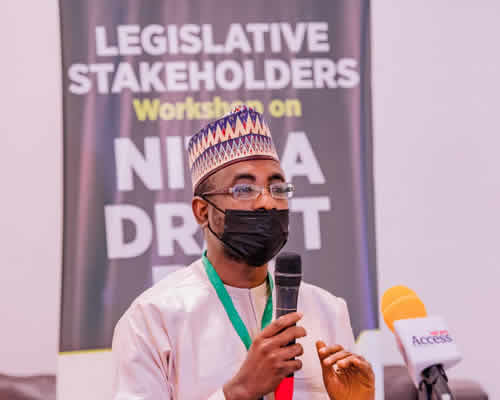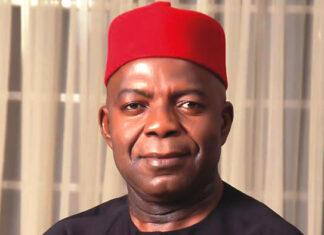The Director General,National Information Technology Development Agency, NITDA,Mallam Kashifu Inuwa Abdullahi,CCIE,Wednesday, presented a proposal for the realignment of ‘NITDA Act 2007’ with the tenets and ideals of Digital Economy Policy of the current administration, and indeed, the 4th Industrial Revolution before the relevant committees of both chambers of the National Assembly.
Making a valid point before the legislators, Abdullahi asserted that our technology driven world is filled with promises but also challenges. He clamored for the need to keep up with the trend of accelerating changes within the IT ecosystem by stressing the need for the review of the ‘NITDA ACT 2007’. He also hinged the need for the review on President Muhammadu Buhari’s (GCFR)transformation agenda and Digital Economy policy.
The DG started by explaining how, in today’s world, people rely on different social media handles to make informed decisions. He cited the example of Google for definition/meanings, news report, or navigation; NETFLIX for recommendation on trending movies; AMAZON or ALIBABA sites for what to buy; as well as other social media handles like Facebook, Twitter, Instagram, etc.
He explained further on the volatility of the human species, saying; “The kind of information we store on our phones and other technological gadgets make the human brain susceptible to the possibility of being hacked”.
While expressing concern over the vulnerability of human species which he said is being threatened by the emerging technologies; he posited that; “Technology disruption is the most disturbing and the least understood”. Adding that; “Technology is taking over the only thing that differentiates us (humans) from other animals”.
He stated that, the era is marked by advancement in digital transformation and artificial intelligence,as he made reference to Mckinsey Global Institute’s latest report ‘on what the future of work will mean for jobs, skills and wages’, that postulates the displacement of about 20,000 million jobs by the year 2030.

Mallam Abdullahi submitted that, keeping up with the global pace has compelled the need to urgently mutate and realign the current ‘NITDA ACT 2007’ to meet the present outlook of the emerging technology in order to secure a place for Nigeria in the emerging global digital economy and 4th industrial revolution.
He concluded by appreciating all the Senators, Honourable Members, and representatives from the office of the Attorney General and Ministry of Justice for their presences and contributions. He charged them to become the pivotal of the 2021 NITDA ACT that would position Nigeria into becoming a leading digital economy in Africa and major player in the global arena.
The Chairman, Senate Committee on ICT and Cybercrimes, Senator Yakubu Oseni, in his remarks, affirmed that the ICT revolution has accelerated the pace of globalization. He agrees with the DG that Nigeria cannot afford to lag behind. He promised that his committee will work assiduously with the house committee and other relevant stakeholders to ensure accelerated passage of the new amendment act for NITDA.
“The world has moved into the blazing digital ecosystem, accelerating at the speed of light, with very effective and disruptive innovation and models, such as; Internet of Things (IoT), Big Data, Robotics, Machine learning, Cloud Computing, Artificial Intelligence, Blockchain implementation and other emerging technologies…”he explained.
He further emphasized that there is ardent need to raise the bar for digital readiness, in order to benefit from the unending economic and developmental opportunities that it presents.
The Senator applauded the NITDA move towards improving its digital space and pledges the support of his committee to the actualization of passing the bill into law.
While delivering his own remarks, Hon. Abubarkar Lado, the Chairman, House of Representative Committee on Information and Communication Technology, added that, the importance of making all necessary amendments in regards to enacting an enabling law for NITDA, as the Apex body in regulatory and development of ICT in Nigeria, is long overdue.
He said, in a sector where technology changes almost every minute, the legislation should be robust enough to accommodate the nature of the ecosystem. He also promised the support of his committee in the passing of the NITDA Amendment bill into law.


























